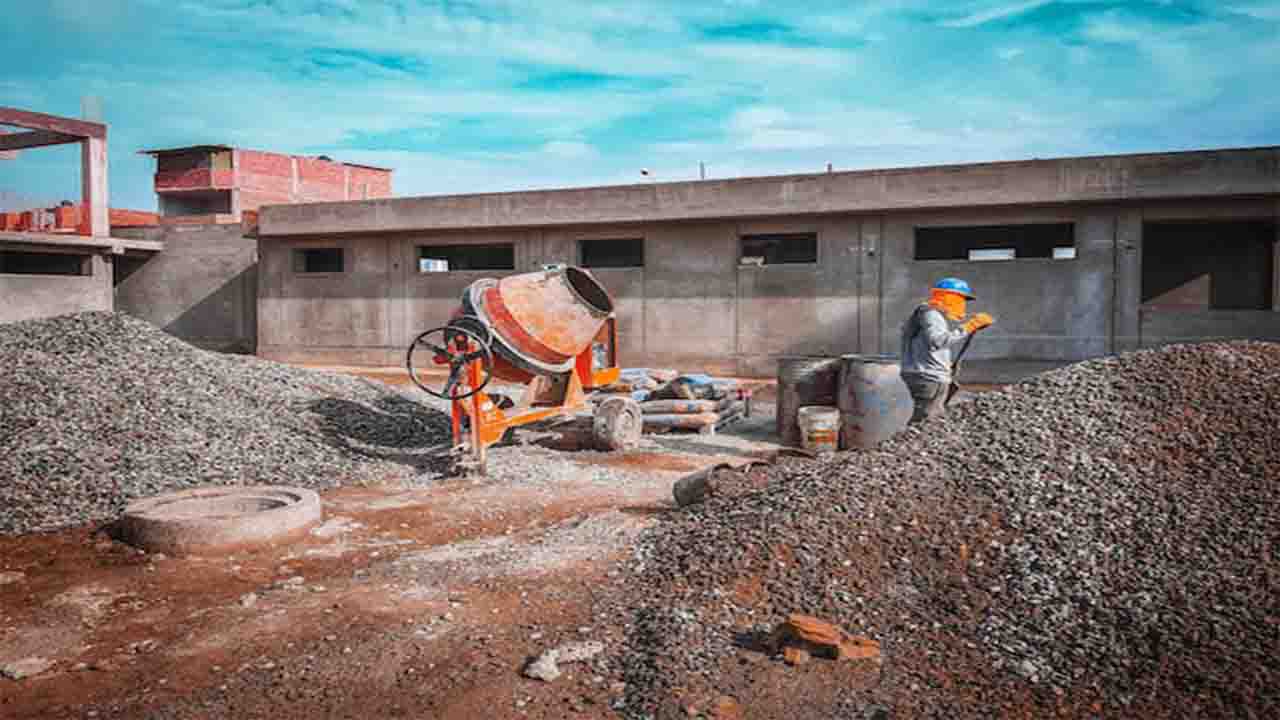Africa (Commonwealth) _ Leading cement producers in Nigeria decided to lower prices, stating that a 50kg bag of cement shouldn’t cost more than N7,000–N8,000, despite increased operating expenses
Following their meeting in Abuja with the Ministers of Works, David Umahi, and Industry, Trade, and Investment, Doris Uzoka-Anite, Dangote Cement, BUA, and Lafarge said that a price monitoring team will be established to make sure that price gouging does not occur.
According to a statement from Uchenna Orji, Umahi’s Special Adviser, it is anticipated that prices will decrease following government initiatives to address the difficulties faced by manufacturers with regard to gas, import duties, smuggling, and improved road infrastructure. The discussion took notice of the difficulties faced by the producers, including high foreign exchange costs, poor road networks, high petrol prices, hefty import duties on replacement components, and the smuggling of cement to nearby countries.
The authorities took note of the difficulties and responded as follows: The President will be consulted by the Federal Ministry of Industry, Trade and Investment over the price of gas and import tariffs. It said that the Federal Ministry of Works will focus more on road maintenance, particularly in the areas surrounding the locations of the firms.
The Federal Ministry of Industry, Trade and Investment announced that it will intensify its previously started dialogue on preventing cement smuggling with the National Security Adviser (NSA). The government and cement producers have observed that certain areas of the country are seeing unusually high cement prices right now. A 50 kg bag of cement should ideally cost between N7,000.00 and N8,000.00 at retail.
Accordingly, the three cement producers—Dangote Cement Plc, BUA Cement Plc, and Lafarge Africa Plc—have decided that, depending on the area, the cost of cement will not exceed N7,000.00 to N8,000.00 per 50 kg bag. In order to guarantee compliance going ahead, the government recommended cement producers to establish a pricing monitoring system.
The statement said that the manufacturers have voluntarily agreed to carry out this task and to penalize any of their distributors or merchants who are found to be deficient.
The government anticipates a decrease in the agreed price following measures taken to address the concerns raised by the manufacturers about gas, import duties, smuggling, and an improved road system. The statement also said that the meeting decided to get back together in 30 days to assess the progress accomplished.
Cement Market
Three significant companies dominate the Nigerian cement market, with Dangote Cement Plc holding the top spot with a market share of 60.6% and a local installed capacity of 29.3 million MT. With a production capacity of 10.5 million MT, Lafarge Africa Plc holds a 21.8 percent share, while BUA Group holds a 17.6 percent part.
The rise in operational expenses for cement companies was ascribed by stakeholders to infrastructural constraints, which included poor transportation networks and unstable power supplies.
Cement prices in 2024 are expected to stay high, according to a report by Cardinal Stone titled Nigeria Cement Rebounding from a Tumultuous Year. The report stated that the poorly executed naira redesign in 2023 caused cash shortages, currency depreciation in June, and heavy rainfalls in the third quarter (Q3).
Nonetheless, it anticipated a recovery in the industry’s performance in 2024 due to the N1.32 trillion infrastructure budget increase, the President’s establishment of the Infrastructure Support Fund (ISF), the active execution of the Agreement on the Comprehensive Transboundary Agreement (AfCTA), and expanded production capacity. In terms of pricing, cement prices in 2024 will stay high since manufacturers are trying to balance rising inflation, FX market volatility, and operational costs.
According to Mr. Adebayo Adeleke, group executive chairman of Lancelot Group, Nigeria’s economy is heavily dependent on cement for the construction of essential infrastructure, including roads, water supplies, hospitals, schools, homes, and ports. Adeleke further stated that while domestic demand for cement in Nigeria has been growing at a rapid pace, local production has not kept up with demand, which has resulted in a daily increase in cement prices.
According to Dr. Muda Yusuf, CEO of the Center for the Promotion of Private Enterprise (CPPE), this is a reflection of the inflationary trend and the broader macroeconomic climate.
Skyrocketing inflation
He made the point that every area of the economy is affected by the inflation phenomena. Additionally, the costs of manufacturing are rising for individuals who are involved in it as well; these costs include rising input, transportation, and energy expenses.
Nearly every sector is impacted by exchange rates. Because they have their own imported components in their production environment, much as many other manufacturing businesses. Additionally, the cost of any imported good or imported input will increase going forward. That’s what it is then. Therefore, this implies that building costs will increase and that the high cost of cement and other building materials would have a detrimental impact on our capacity to satisfy housing demands and close the housing shortfall.
Yusuf continued, saying that all of the budgeted construction projects will inevitably cost more money. As a result, many project costs—whether in the public or private sectors—will need to be examined.
Yusuf clarified on the way out that it is up to us to deal with the macroeconomic problems. It is necessary to address the macroeconomic issues of high inflation, a declining currency rate, little liquidity in the foreign exchange market, and high energy expenses, among others. He demanded increased currency market liquidity and a stronger naira, which translates to a stronger exchange rate. He also said that we needed to make sure that petroleum products are produced locally, which should lower the price of energy. All of those items could aid in lessening the issue.








